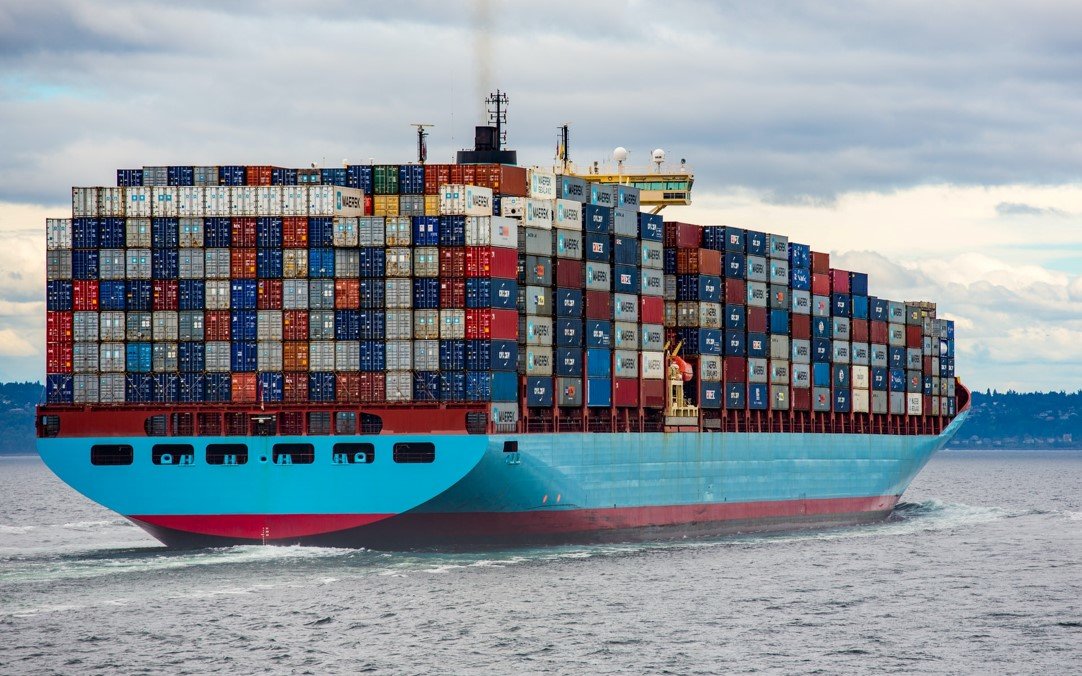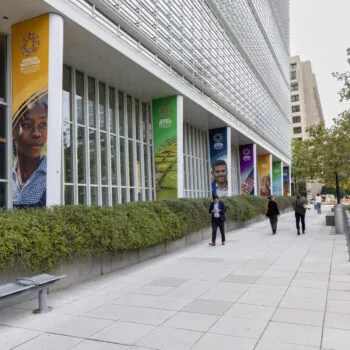At this week’s IMF-World Bank Group Spring Meetings, the forward direction of the global economy is under discussion. The route to a resilient net-zero economy may feel uncertain, but it is more important than ever.
Record clean energy investments ($2 trillion in 2024) are driving renewable deployment, with renewables projected to supply over 50% of global electricity by 2050. However, the global clean energy transition faces significant challenges from policy volatility and reprioritization in the U.S. and Europe, with recent U.S. tariff shifts exacerbating uncertainty, supply chain vulnerabilities and geopolitical competition. The IMF has just published its latest World Economic Outlook, lowering its global growth forecast to 2.8%.
Trade tensions are reshaping supply chains
Notwithstanding recent events, trade reform discussions have been a long-term trend. Tensions have been building between several major economies, with longstanding dissatisfaction from global south countries and a gradual reduction in the effectiveness of the World Trade Organization as a forum for resolving disputes.
There may now be some delays to clean manufacturing projects, as the disruption of the global trading system makes long-term returns more uncertain. Reorganizing supply chains will take time. China is likely to continue playing a dominant role in the mining and refining of critical minerals, but over time, it is also likely to face more international competition, while seeking to grow domestic consumption.
Low-income countries, already suffering from declining aid flows as donor countries shift their focus to domestic concerns are likely to be the most affected by current global uncertainty and trade disruption.
Debt is a global issue
Meanwhile, fiscal space and debt are at the top of the global agenda. Public debt burdens are increasing globally, and challenges with public finance are likely to increase as developed countries deal with post-Covid debt and many developing countries are in or close to debt distress. Europe is additionally increasing its defence spending. None of this makes it easy to find public money for international climate finance, although all eyes are on the Baku-Belem Roadmap to be unveiled at COP30 by Brazil.
Creating fiscal space for growth-enhancing and sustainable policies will be one of the major challenges ahead. In low-income countries, a combination of domestic resource mobilization and renewed support, both technical and financial, from international partners will be essential. Action that takes into account the climate-debt nexus affecting the most vulnerable countries is becoming even more urgent.
Recent inflationary pressures, due in part to the fallout from Covid, have brought back fears of inflation, contributed to interest rates rising from their recent historic lows and added to questions about the medium term.
Productivity is a stubborn underlying concern, with more than half of the deceleration of global growth since 2008 attributed to its global stagnation. New technologies such as AI-powered automation will be transformative but also raise concerns about wealth distribution and jobs.
Currency and foreign exchange issues will also be a topic of macroeconomic discussion this week, thanks to recent shifts in market perception of major currencies and building on a longer trend of discussions within the IMF and elsewhere.
The current financial architecture was originally designed to address the major challenges of a previous age, although it has frequently faced challenge. Eighty years later, there have been substantial changes to the original Bretton Woods agreement, as well as substantial evolution of its twin institutions, the World Bank and the IMF, which are holding their meetings in Washington DC this week. Further reforms to the World Bank and regional international financial institutions (IFIs), and additional reallocation of IMF Special Drawing Rights, can offer some potential solutions to today’s woes.
Building on momentum for a climate-safe global economy
In short, we see three factors providing positive momentum for climate and the global economy, even at the current time of risk and uncertainty:
- The transition to a clean global economy is still occurring and the economy of the future will increasingly be low carbon, as witnessed by reduced costs for renewable energy and electric vehicles.
- Ongoing processes for evolution and reform in the Bretton Woods institutions should create counter-cyclical headroom for investment, despite a potential slowdown of the global economy.
- Over time, current changes will enable new multilateral coalitions and configurations to emerge, for example in trade, which may also build on common interests in addressing climate change.
The world economy is in flux and resolution will require reconfiguration. However, we believe that there are shoots of hope that can be nurtured for progress towards a clean and climate-safe global economy.


